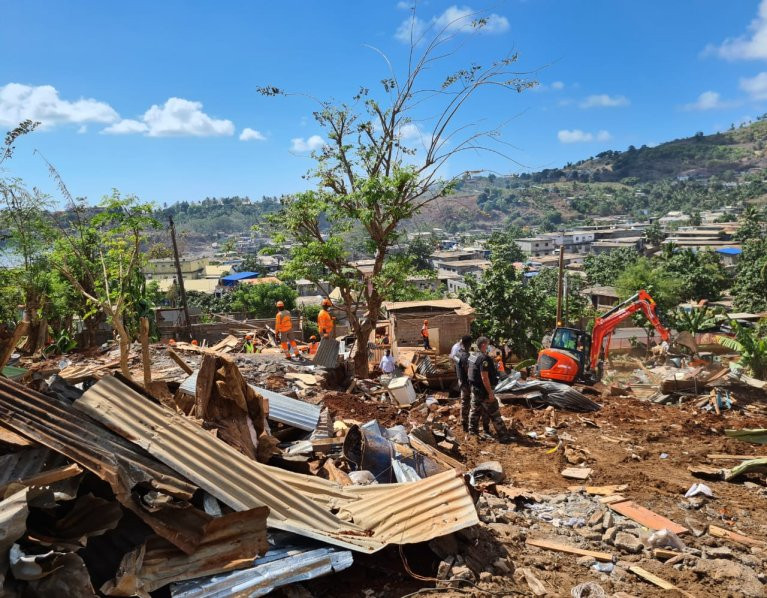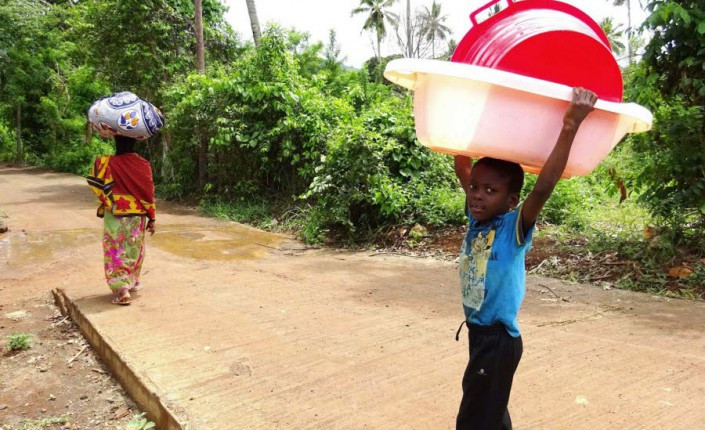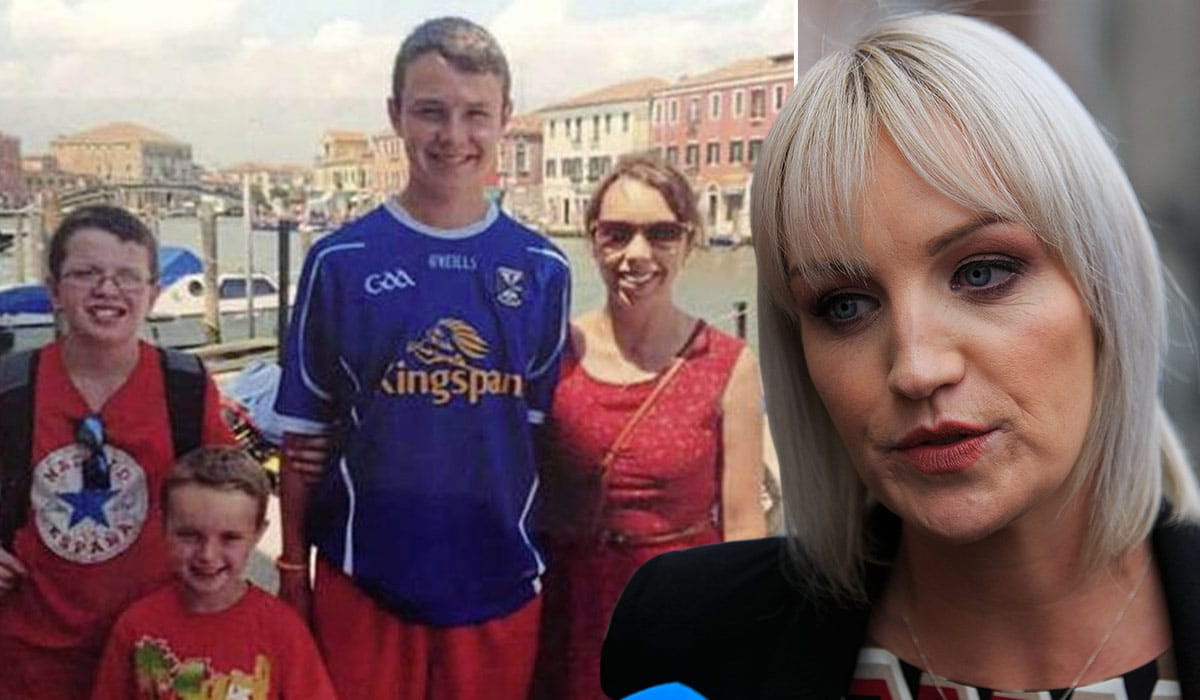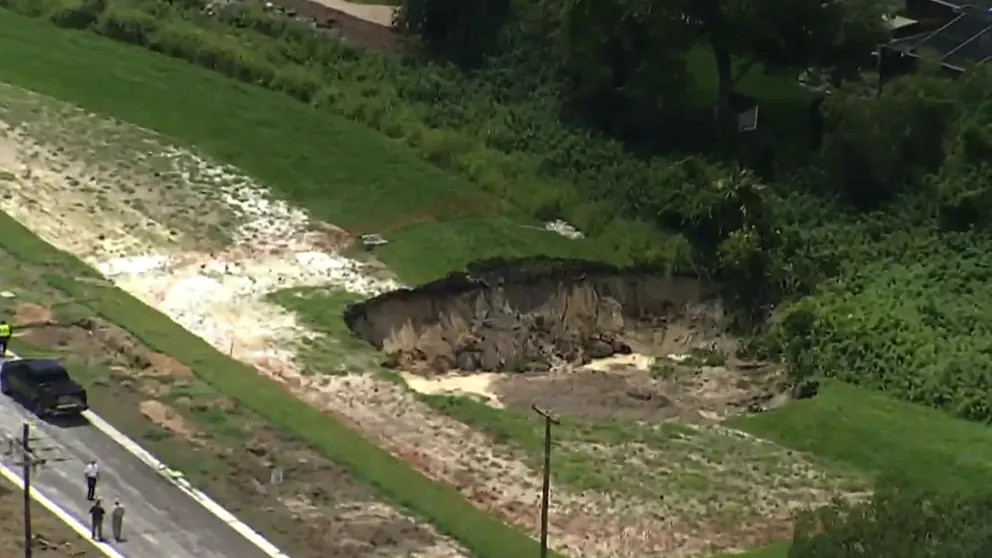Mayotte's Catastrophic Cyclone Chido: A Devastating Wake
The idyllic French territory of Mayotte in the Indian Ocean has been ravaged by Cyclone Chido, leaving a trail of unimaginable devastation and a grim human toll. The storm, described as the worst in nearly a century, hit the island with ferocious winds exceeding 220 kph (136 mph), transforming vibrant communities into scenes of utter destruction.
The Scale of the Tragedy
The official death toll stands at 14, a figure tragically dwarfed by the chilling estimates from local authorities. Mayotte Prefect François-Xavier Bieuville initially warned of several hundred fatalities, potentially reaching into the thousands. This grim prognosis stems from the widespread damage to the impoverished island's densely populated shantytowns, made of vulnerable metal shacks and informal structures. The sheer scale of destruction makes accurate casualty assessments a painstaking and lengthy process. Rescue teams, including personnel from France and neighboring Reunion Island, are working tirelessly, but the challenges are immense. “It will take days and days to establish the human toll,” Interior Minister Bruno Retailleau acknowledged upon arriving in Mamoudzou, the capital of Mayotte. He arrived to begin an official visit, and to be briefed on the impact of Cyclone Chido.
Challenges in Counting the Dead
Adding to the difficulty in establishing the accurate death toll is the unique cultural context of Mayotte. The Muslim tradition of burying the deceased within 24 hours of death, alongside the presence of numerous undocumented migrants, complicates the process of identifying and recording casualties. Many may never be officially recorded. Bieuville lamented the inherent challenge in achieving a complete accounting of those lost. The high number of undocumented migrants further complicates these efforts.
The Aftermath: A Scene of Widespread Destruction
The destruction caused by Cyclone Chido is almost beyond comprehension. Entire neighborhoods have been flattened, transforming bustling streets into desolate wastelands. Public infrastructure has borne the brunt of the storm’s fury. The main airport and hospital have suffered significant damage, severely hindering rescue and relief efforts. The airport control tower damage restricts access to the island and only military aircraft can land. The electricity supply has been completely knocked out, plunging much of the island into darkness. One resident described witnessing an “entire neighborhood disappear” before his eyes. The mayor of Mamoudzou, Ambdilwahedou Soumaila, echoed this sentiment, stating that the cyclone “spared nothing.” Schools and hospitals are damaged, and the situation is described as chaotic.
Mayotte's Vulnerability: Poverty and Precarious Housing
Mayotte, already France's poorest department and the poorest territory in the European Union, is acutely vulnerable to such natural disasters. A substantial portion of the population—around 75%—lives below the French poverty line, many in precarious shantytowns where makeshift dwellings offered little protection against the cyclone's rage. These communities, with their predominantly sheet-metal roofs, were flattened by the ferocious winds, exacerbating the humanitarian crisis. The high unemployment rate, about one in three, and a population that includes many undocumented migrants seeking asylum, have left this already struggling area extremely vulnerable. A water crisis was present before the cyclone hit, and now people are also starting to die of thirst and hunger.
The Impact on Essential Services
The damage to the central hospital and other health centers has crippled Mayotte's healthcare system. Geneviève Darrieussecq, French Health Minister, outlined the extensive damage to the island's main hospital, including significant damage to surgical, intensive care, maternity, and emergency units. Mobile medical services are being set up to address the urgent need for medical care. The destruction of critical infrastructure has also severely hampered access to clean water and sanitation, increasing the risk of disease outbreaks. Mathilde Hangard, a journalist based in Mayotte, described the situation as “another day in hell.” The health system, she adds, is severely impacted and access to care is extremely degraded. A senator for the French territory adds that the residents are starting to die of thirst and hunger.
The International Response: A Race Against Time
France has mounted a significant relief effort, rushing aid by ship and military aircraft. Hundreds of additional personnel are expected to arrive in the coming days. International aid organizations are also mobilizing to assist with search and rescue operations, providing essential supplies, and supporting the recovery effort. The French Red Cross has mobilized teams, though communications challenges impede their work. The French Interior Minister visited the island after deploying troops. French President Emmanuel Macron expressed his support and commitment to provide urgent assistance. The scale of the disaster is such that the full impact will not be known for many days or weeks.
The Broader Context: Climate Change and Cyclones
While the specific impact of climate change on Cyclone Chido requires further scientific investigation, there are clear trends connecting human-induced climate change to increased cyclone intensity. Warmer air holds more moisture, leading to heavier rainfall, and warmer ocean waters provide more energy to fuel stronger storms. The sea surface temperature in the Mozambique channel was about 1.5°C warmer than average. This suggests an increased likelihood of more powerful, more destructive storms like Chido. Cyclone Idai in 2019 and Cyclone Freddy in 2023 stand as stark reminders of the catastrophic consequences of these increasingly powerful storms in the region. The impact of Cyclone Chido underlines the urgency of addressing climate change and building greater resilience to the impacts of extreme weather events. Experts suggest that rainfall in storms like Chido would be expected to be at least 7% heavier than it would be without climate change.
A Grim Future and the Road Ahead
The devastation wrought by Cyclone Chido is a sobering reminder of the fragility of life and the power of nature. The immediate priority is saving lives and providing desperately needed relief to the survivors. However, the long-term recovery will be a daunting task, requiring substantial international support and a concerted effort to rebuild communities and infrastructure. The tragedy underscores the vulnerability of the world's most impoverished populations to the impact of climate change and the urgent need for collective action.
The situation in Mayotte remains dire. Rescue workers, struggling amidst the devastation, are racing against time to find survivors. The world watches with a heavy heart, hoping against hope for a miracle amid the ruins.


















